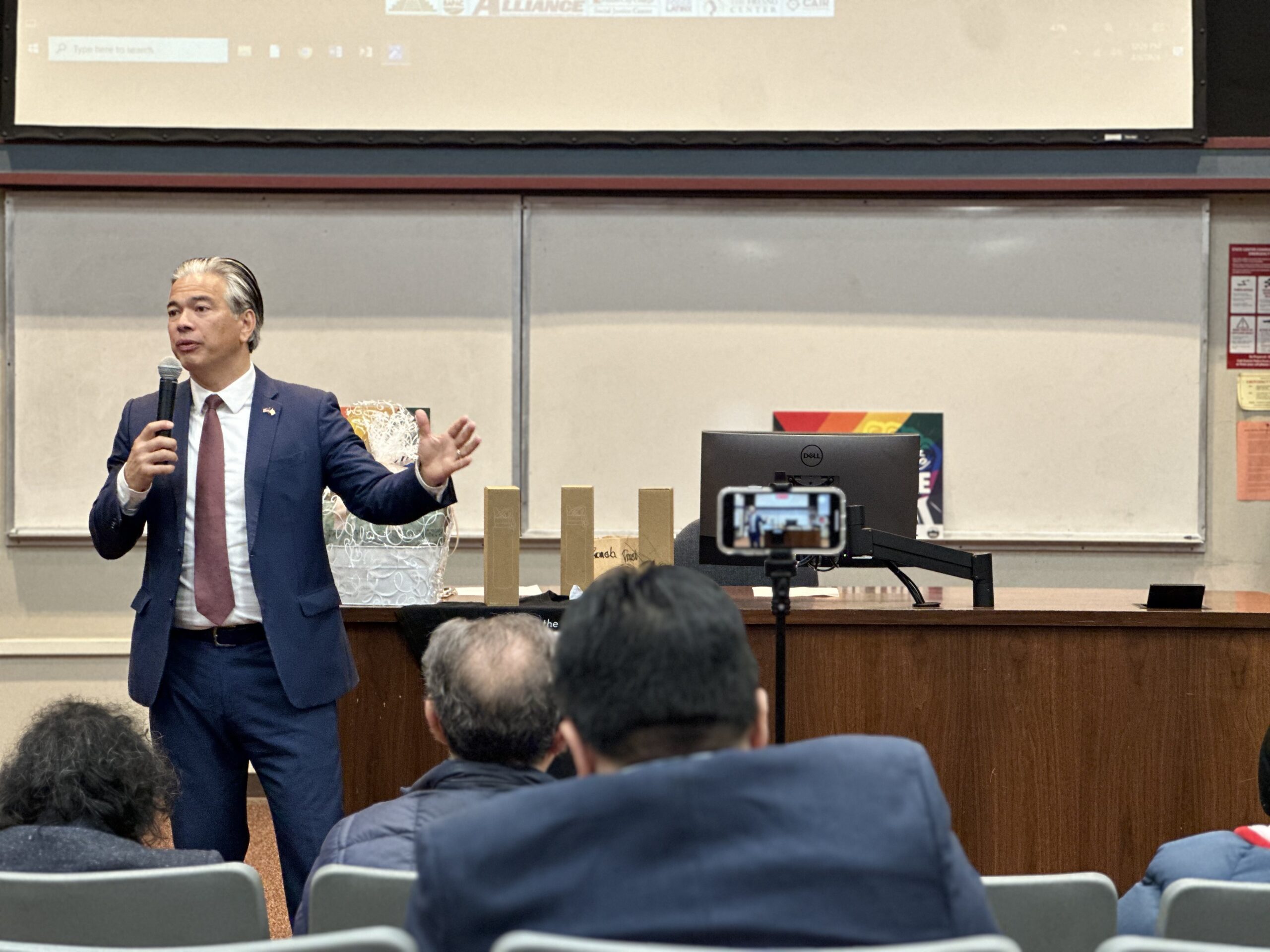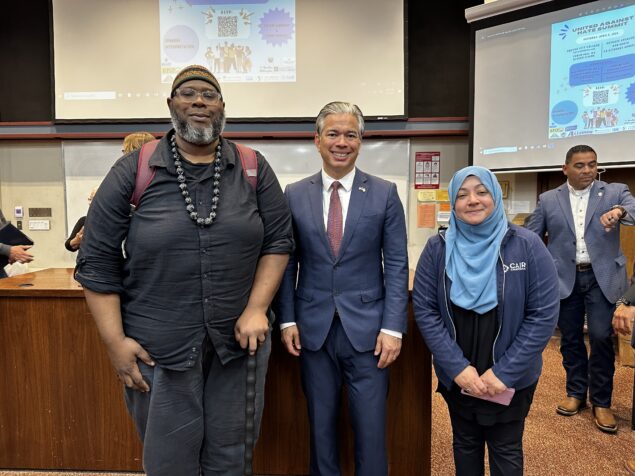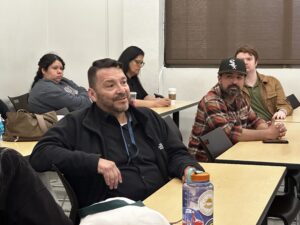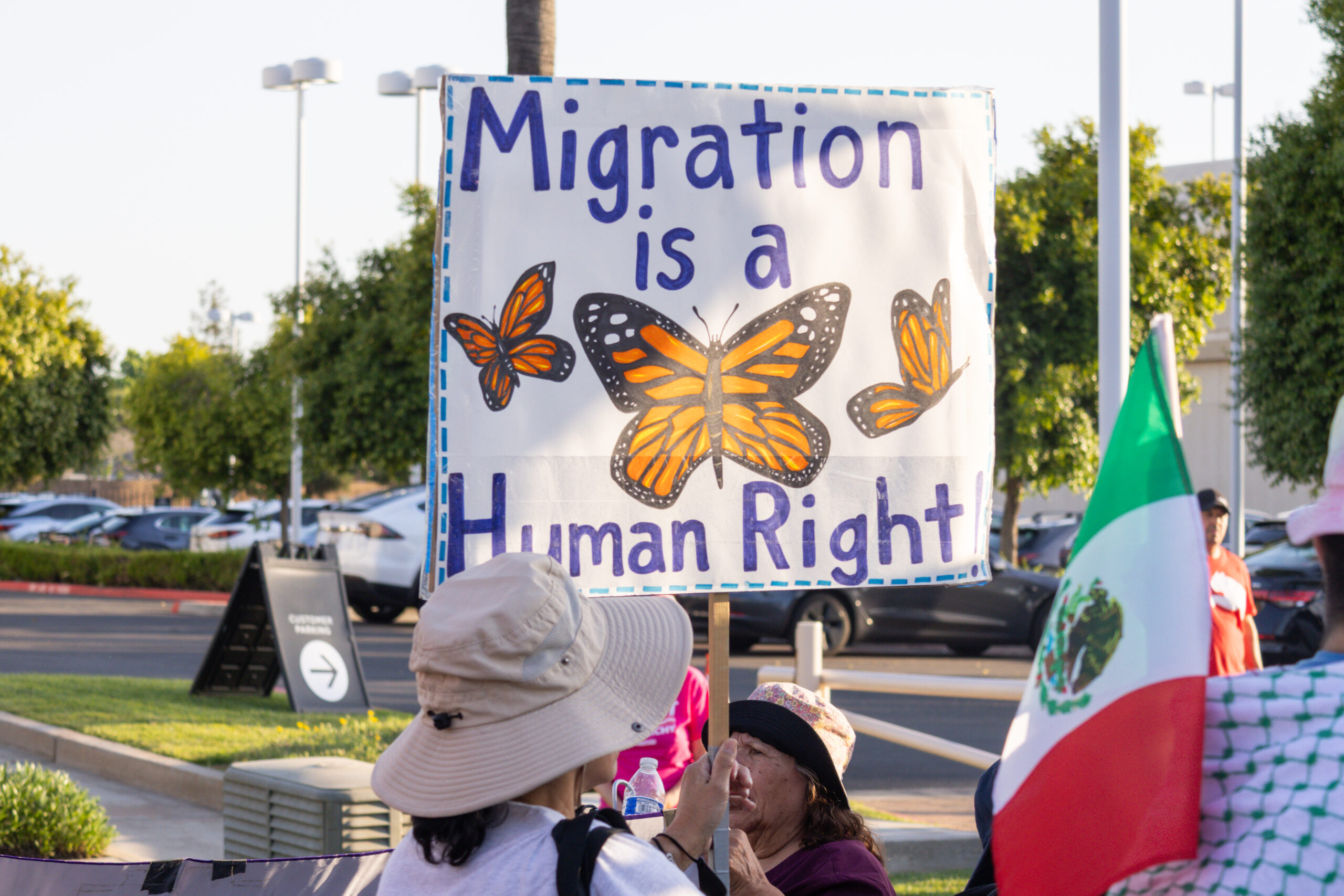
California Attorney General Rob Bonta said Saturday the State Department of Justice wants to work with community groups to fight hate.
“So if there’s something happening here, where you think there’s criminal activity involved, we’re interested,” he said. “We want to work with you, we want to help you, we want to be part of the solution that will get folks accountable, and make sure nobody gets hurt.”
Bonta was the keynote speaker of the United Against Hate Summit held at Fresno City College as part of the United Against Hate Initiative, a national effort to combat and raise awareness of acts of hate.
The U.S. Department of Justice launched the initiative in September 2022, bringing all 94 U.S. attorney offices together to host outreach and community events designed to educate members about how to handle and prevent hate crimes.
According to the 2022 Hate Crime in California report, the most recent released by Bonta’s office, the number of hate crimes reported as well as the numbers of victims and suspects all significantly increased from the year before. Reported hate crimes motivated by prejudice against the victims’ race, religion, sexual orientation or gender also went up.
Bonta said his inspiration for being part of this initiative comes from his parents.
“They made me believe in my greatness, everything that I had, the gifts that I had,” Bonta said. “I thought maybe one day I could be an elected official, and not be the one that turns his back on the people, but stands with the people and that makes their fights my fights.”
When he was first elected three years ago, he said the state was going through a surge of hate, especially with racial injustices.
“One of the first things I did was I created a department of racial justice, to make sure that we, as a state, acknowledge the fact of racial injustice in activity,” he said.
In addition to Bonta, the summit also featured workshops and an event fair where community media groups, youth coalitions and governing officials offered information on their services with the goal to combat hate with love.
“I’m going to call you lovers today in an affectionate way because … we’re here to stop hate and really the only armed force we have against hate is love,” said Daren Miller, board member of the San Joaquin Valley Media Alliance newspaper and lead sponsor for the event during his opening statements.
Miller also said that during his time as a college football player, his coach taught him that no single person is stronger than an entire team. He said he applies this concept to the work he does now because he believes that coming together as a community is how hate will be diminished.
“That’s how we’re going to eradicate hate is by coming together not as a finger, or individual silo, but as a fist, being able to walk hate outside the gate,” Miller said.
Following the opening remarks, attendees dispersed and were able to pick one of four hour long workshops to attend.

One workshop, in which the Fresno Center discussed anti-Asian and Pacific Islander hate, taught people what to do if they were the victim of a hate crime. A bystander training workshop informed people on what to do if they witnessed a hate crime.
The Stop the Hate coalition campaign workshop provided information about a program by the Fresno Center designed to provide support to survivors of hate incidents and their families.
The fourth workshop, called “Know Your Rights,” was a mini lecture about the rights U.S citizens possess as employees and when engaging with law enforcement. It was hosted by the Council on American Islamic-Relations, a nationwide group based on four pillars: outreach and education, youth empowerment, civic engagement and legal services.
“We are the largest Muslim civil rights and advocacy organization in the country, but first and foremost, we protect civil rights, ” said Sukaina Hussain, deputy executive director of CAIR’s Sacramento/Central Valley chapter. “So if folks experience just what we’re talking about today — hate crimes, a violation of their rights, discrimination because of race or religion — we are there to support them.”
Ameer Brooks, outreach coordinator at CAIR, explained the basics about what employee discrimination is, what steps to take if that kind of discrimination is encountered, and what to do in an interaction with law enforcement.
“So this ‘know your rights’ training is designed to provide an overview of the rights when interacting, not just with law enforcement, of course, but with your employer, especially in a certain city and various situations,” Brooks said.
Brooks emphasized that the most important thing for an individual to do in the face of discrimination in the workplace is to document the incident in writing and be up to date with the employee handbook and guidelines of their job.

He also said not to sign anything without seeking legal advice first, and suggested filing a complaint with government agencies depending on the severity of the issue.
The workshop also taught attendees their basic rights when it comes to being pulled over or an officer showing up at their house.
“We just say don’t talk to them at all,” Hussain said. “Just assert your rights. Don’t consent to anything. Don’t answer the questions, tell them to speak with your attorney, take their contact information if they show up at the door and if you’re being stopped or if you’re walking down the street, just say, ‘Am I being detained or am I free to go?’ Most of the time, they have no right to detain you, so you’re free to go.”
Any victim of or witness to a hate incident or crime in California can report it and receive support any time at CAvsHate.org. You can also call 833-8-NO-HATE; (833) 866-4283 Monday – Friday from 9:00 am – 6:00 pm. If outside of those hours, you can leave a voicemail, or you can call 211 to report hate and seek support. You can currently submit reports online in 15 languages and, when calling the hotline, you can get access to support in over 200 languages. If you want to report a hate crime to law enforcement immediately or you are in present danger, please call 911.
This resource is supported in whole or in part by funding provided by the State of California, administered by the California State Library in partnership with the California Department of Social Services and the California Commission on Asian and Pacific Islander American Affairs as part of the Stop the Hate program. To report a hate incident or hate crime and get support, go to CA vs Hate.
This article was originally published in The CC Pulse.


